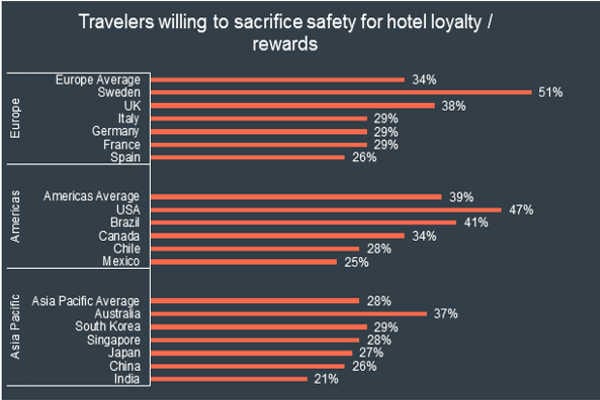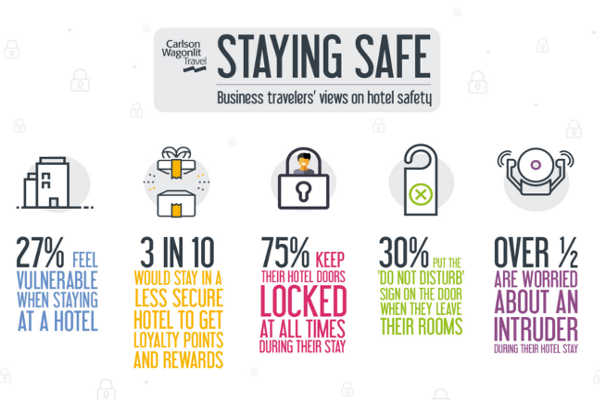Indian business travellers value hotel rewards over safety
Globally, three in ten business travellers are happy to sacrifice safety for hotel loyalty and rewards incentives, according to research commissioned by Carlson Wagonlit Travel, the global travel management company. Travellers in America are likeliest to do so (39 per cent), followed by Europeans (34 per cent) and travellers from Asia Pacific (28 per cent).
Only around one in five (21 per cent) Indian business travellers said they would choose points over personal safety, making them the least likely globally to do so, of the 17 countries surveyed.
“Clearly, travellers are very focused on their hotel loyalty points. They will go to great lengths to get their hands on those benefits,” said David Falter, president, RoomIt by CWT. “One way of meeting that challenge – short of tougher enforcement – is to let travellers collect points for booking within policy.”

Almost one in three (30 per cent) Asia Pacific business travellers expressed concerns about safety at hotels, in contrast to 27 per cent travellers from the Americas and 23 per cent of European travellers. Indians (39 per cent) are the most worried globally about their personal safety at hotels, according to the survey.
When asked what makes them feel unsafe, exactly half the travellers surveyed globally said they worry about an intruder breaking into their hotel room. What makes Indian travellers most anxious, however, is hotel staff inadvertently giving out their room key or information to a stranger – more than two-thirds (67 per cent) of Indians surveyed labeled this a concern, compared with 41 per cent of travellers globally.
This was followed by disruptions caused by the actions of other guests – something that worries 56 per cent of Indian travellers, versus 40 per cent of travellers globally.
And a third of respondents globally identified fires (36 per cent) and terrorist attacks (33 per cent) as causes for concern.
Precautions travellers take
As expected, the vast majority of travellers (75 per cenr) said one of the measures they take to stay safe is keeping their room door locked at all times.
“While most hotel rooms lock automatically, a number of solutions available on the market can provide an added layer of security,” said Falter. “Items such as door wedges, portable door locks and travel door alarms can help a traveller secure their room more effectively.”
More than a third of travellers surveyed globally (37 per cent), and 46 per cent of Indian travellers, said they take the room key out of key folder so people can’t link the key to the room. Travellers from America (42 per cent) are more likely to do this than those from other regions.
Another tactic is to put the ‘do not disturb’ sign on the door when they leave the room adopted by 30 per cent of travellers globally and 35 per cent in Asia Pacific. Travellers also believe that the floor they stay on can impact their safety and security. Almost a quarter of those surveyed (23 per cent) said they opt for a higher floor when possible, while 15 per cent choose a lower flower. Around two in ten travellers (21 per cent) said they avoid staying on the ground floor. Indian travellers expressed a strong preference for staying on a higher floor, with 30 per cent of those surveyed saying they make this request.
“Security experts typically advise staying between the third and sixth floors, where it becomes difficult for an intruder to break in, but you’re still within the reach of most fire departments’ ladders,” added Falter.

